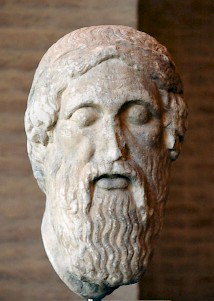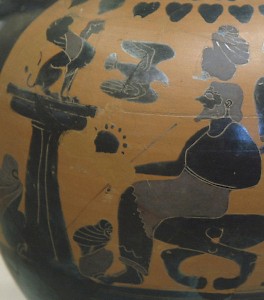Oedipus
Epic Cycle (᾽Επικὸς κύκλος): set of twelve archaic epic poems, known to every educated Greek. The best-known were Homer's Iliad and Odyssey, which are also the only epics that have survived.
Summary

The Oedipus is the second epic of the Epic Cycle; it is attributed to one Cinaethon. It dealt with the story of the luckless king of Thebes, and must have mentioned the story of the Sphinx, his marriage to his mother Jocasta, and the discovery of this scandalous marriage. Given the length of the poem, other subject matter must have been dealt with too.
Fragments
1. Corpus Inscriptionum Graecarum Italy and Sicily 1292.ii.11:
… the Story of Oedipus by Cinaethon in six thousand six hundred verses.
2. Pausanias, Guide to Greece, 9.5.10:
Judging by Homer I do not believe that Oedipus had children by Iocasta: his sons were born of Euryganeia as the writer of the Epic called the Story of Oedipus clearly shows.

3. Scholiast on Euripides, Phoenician Women 1750:
The authors of the Story of Oedipus (say) of the Sphinx: "But furthermore (she killed) noble Haemon, the dear son of blameless Creon, the comeliest and loveliest of boys."
4. Athenaeus, Deipnosophistae, 7.277e:
Sophocles liked the Epic Cycle, and even composed entire plays in close conformity to the stories told in it.
Note
The translation of the fragments was made by Hugh G. Evelyn-White, and was copied from LacusCurtius, except fragment 4, which was translated by Charles Burton Gulick.